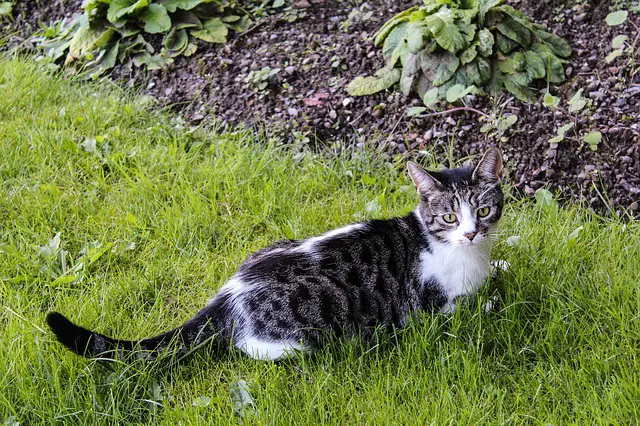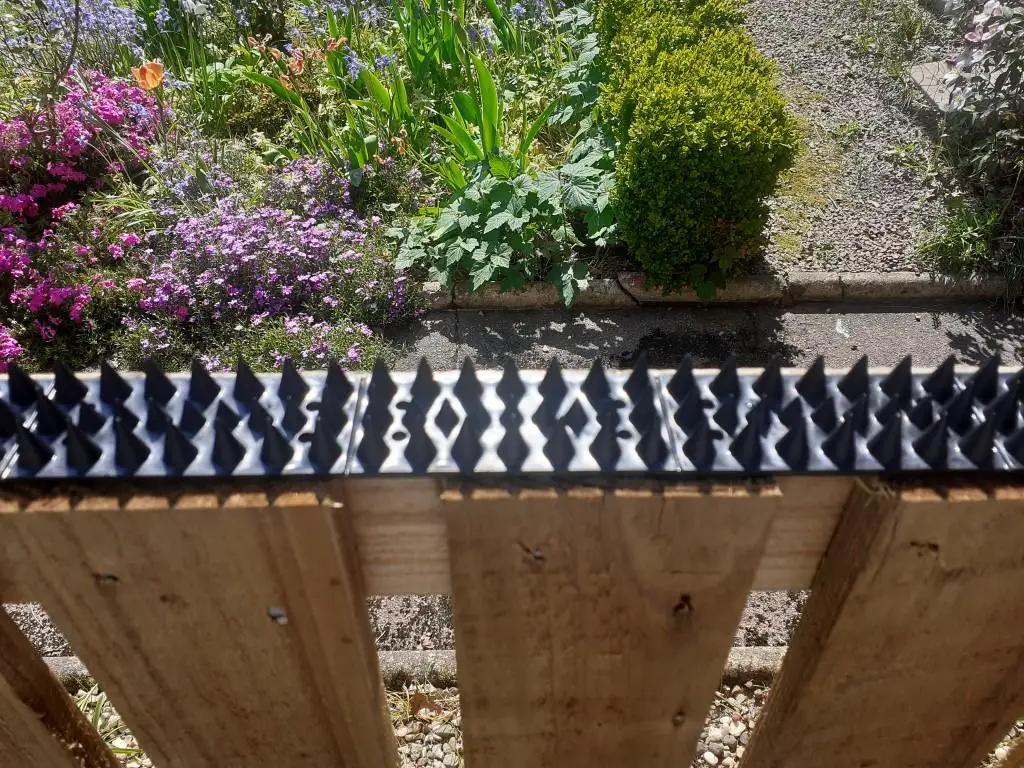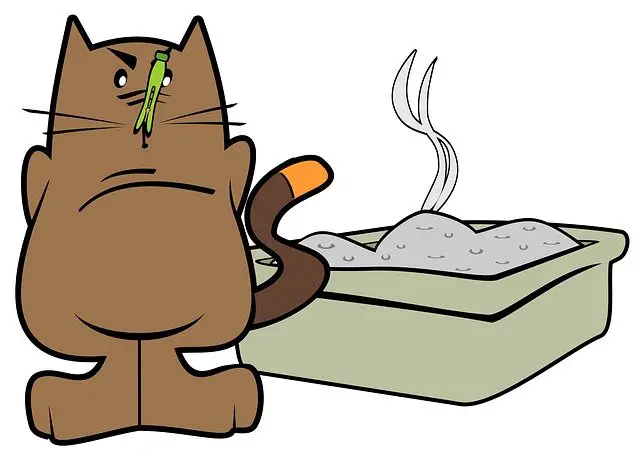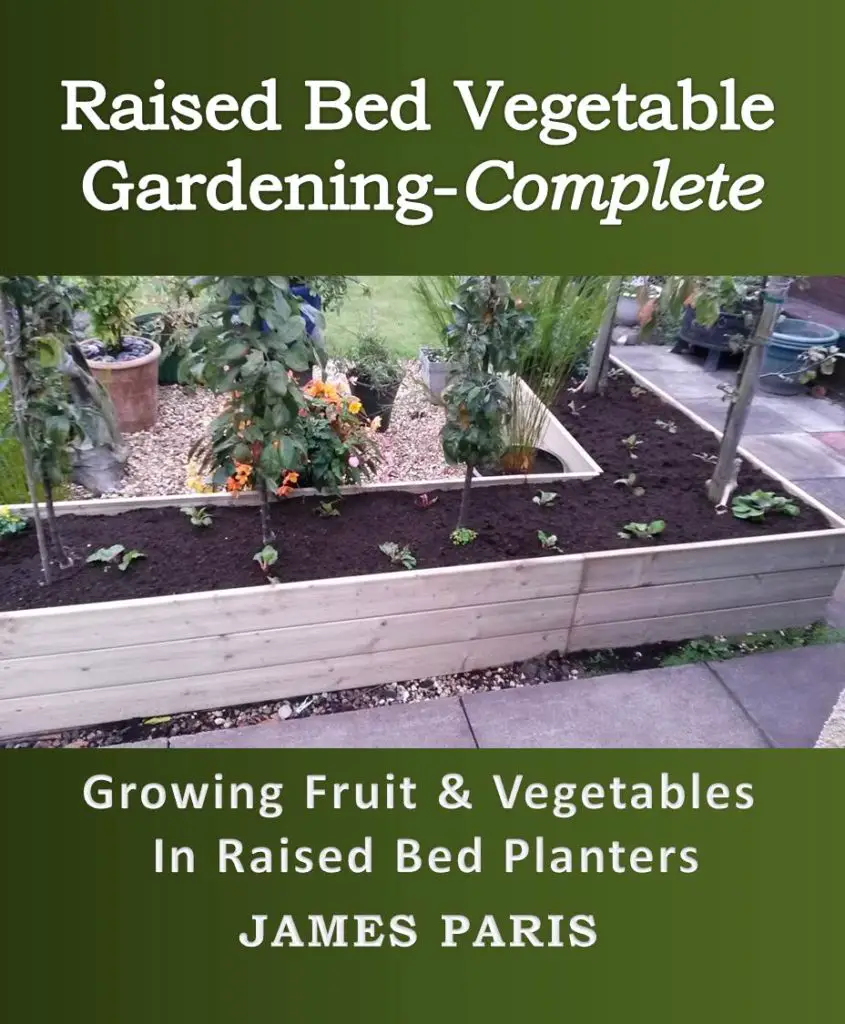
For any gardener there is little more disgusting and horrific than getting a hand full of cat poop whilst tending your raised bed garden, or for that matter any garden area!
Cat faeces are not only disgusting to handle, but they can add all sorts of disease and parasitic infections like Toxoplasmosis (tok-so-plaz-MOE-sis) to your growing area – just not something you want to deal with if it can be avoided.
Thankfully as irritating (and dangerous to health) as cat poop in the vegetable bed is, there are several ways to deal with it – all of which involve persuading the cat that there are other, better places to poop than your raised garden bed.
- Water sprinkler: Cats just hate being sprinkled with water. With this in mind try an automated sprinkler system that will activate as soon as it detects movement around your raised bed
- Cover the area: Covering over your raised bed with fleece, butterfly mesh, or polythene, as you would when protecting your veggies from pests such as white butterfly. Or perhaps changing it into a mini-polytunnel, will also help protect against cats doing their business.
- Sonic scarers: The high pitch sound emanating from an ultrasonic scarer is let off when the scarer detects movement. Placed near on inside a raised bed the cat soon identifies the loud sound with its own presence and will avoid the area.
- Gel Smells: There are several gels on the market that are made up to discourage cats to frequent the area where they are placed. These are usually based on odours that cats dislike and hot peppers that will irritate their delicate noses.
Why do cats poop in raised bed gardens?
Given the ‘choice of venue’ a cat will choose a raised bed over a traditional dirt garden for 1 simple reason – the mix in the raised garden bed is much lighter (or should be!) to dig in and deposit their poop!
Not only is the soil looser making things easier for them, but it is also warmer and better drained than dirt.
A cat may also feel safer in a raised bed as they can keep guard by around them from their elevated position while doing their business amongst your veggies.
Other methods to keep the cats away
Over the winter time when you are perhaps not using the bed for anything, make sure to cover it over with whatever you have to hand. Otherwise you may well return in the spring to find a bed completely contaminated with poop.
In this case you would be wise to completely remove the top 6 inches of soil and refresh with a new mix – DO NOT put the contaminated material into the compost heap otherwise you will contaminate that as well.
Vinegar can often be used as a cat deterrent as they cannot stand the strong smell. Simply sprinkle a little around the area in the evening and set a jar half full of vinegar into the soil.
The strong odour of vinegar will linger all around the area and should deter all but the most determined moggie.
If the weather is poor you do not want the jar filling up with rain so make up a small covered area above the jar to stop this and the vinegar will remain just as effective in the rain.
Companion planting: Plants that cats hate include rosemary, lavender, and eucalyptus. Plant these around your raised bed to discourage cats.
Home made cat repellent sprays
Fill a hand sprayer with a mix of vinegar and water, spray around the area to deter the cat.
Peppermint essence is also a good deterrent not only against cats but also mice. Just add about 15-20 drops to water in a hand spray bottle and spray the area.
Other essential oil mixes for the spray repellent bottle would be citronella, lavender, or lemongrass.
Try a sand pit. Maybe the option of last choice as the solution would be discourage the cat from the area altogether. If all else fails present the cat with an ‘irresistible offer’ its own personal sand pit!
The downside of this option is that you will have to clear it out regularly – not such a great idea maybe.
Cucumber deterrent. Strange as it may sound – cats are terrified of cucumbers for some reason which remains baffling even to the experts. Don’t believe me? Just check up on some of the videos on YouTube to see cats reactions when presented with the harmless cucumber.
to see cats reactions when presented with the harmless cucumber.
If you have a few cucumbers to spare in season, try placing them around the area in the garden the cats frequent and see what happens. On a side-note here…I would not eat the cucumbers afterwards – even after a good clean up!
Spikey Cat Deterrent
This is something I personally use to discourage cats and foxes from my garden. These plastic spikes are perfect for fixing along a garden fence or wall – indeed any surface that you may have seen the cat traversing on its wanderings!
These deterrent spikes will keep away a variety of small animals, including foxes, cats, racoons and squirrels.
The spikes themselves look fairly serious, but will not cause any permanent damage, but they are certainly painful to walk on and a cat will soon get the idea to avoid this area.
They can be screwed down onto timber, or fixed with silicon adhesive to a wall if you prefer not to drill the masonry. Cats, foxes and even birds like Magpies and crows definately do not like them and will give the area a wide berth if they can.

Summary:
The fact is that some of these ideas will work better than others, and a lot depends on whether or not it is your own cat that is the culprit.

If it is the neighbors cat then maybe try and tell them gently (without a falling out), and they may be more attentive to their own cat litter tray and save you a load of hassle.
Just to finish? It is not all bad news to have cats around your garden area, they are very good at clearing other pests such as mice and rats that can cause havoc amongst your peas and bean crops for instance.
If only they would just stop pooping in the raised beds…


